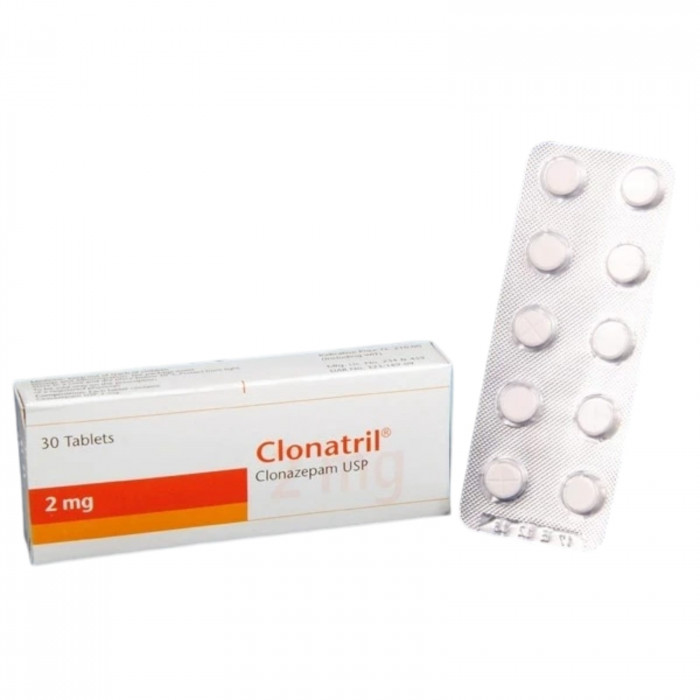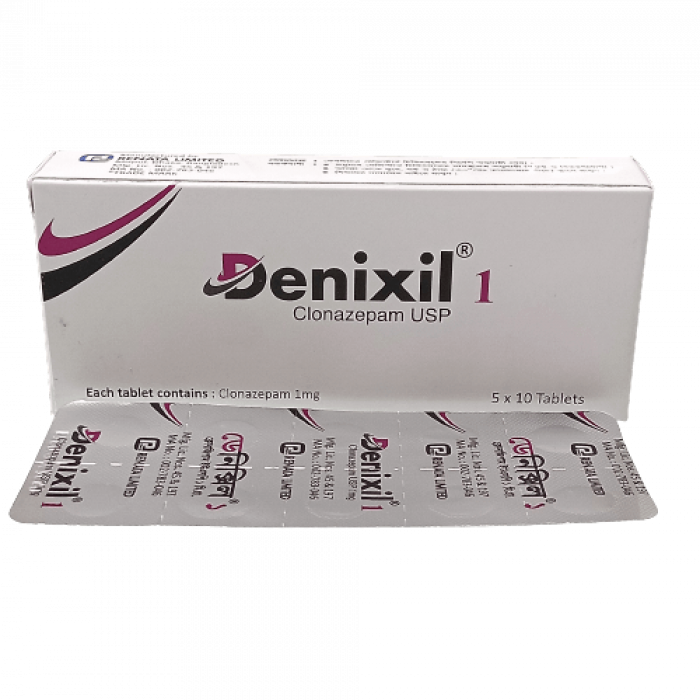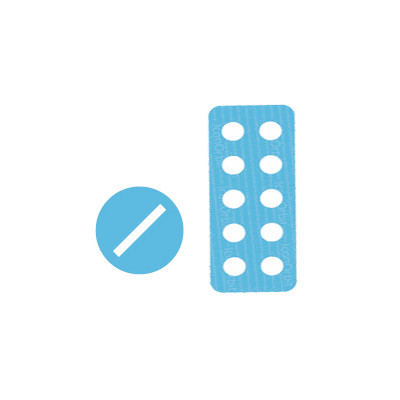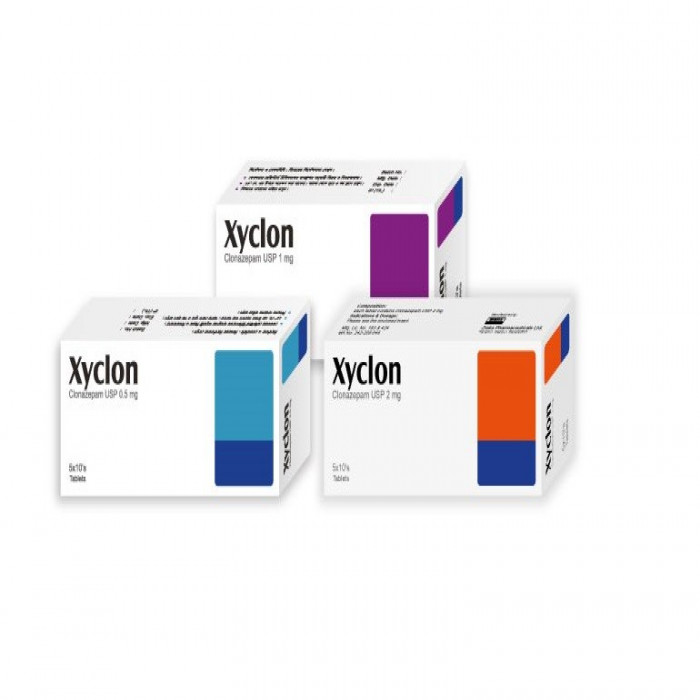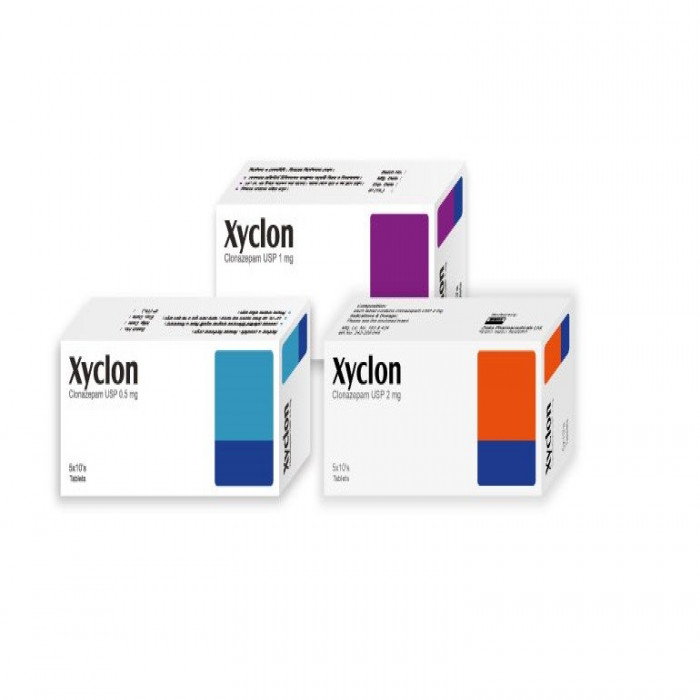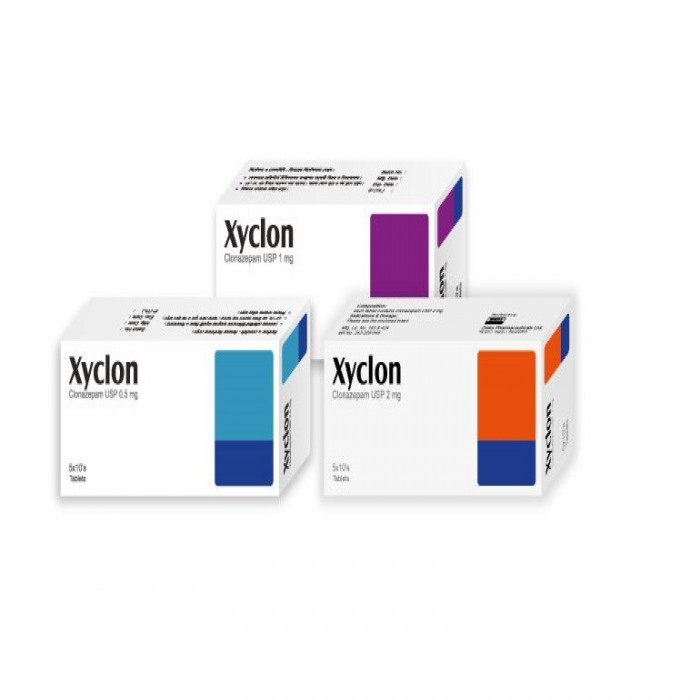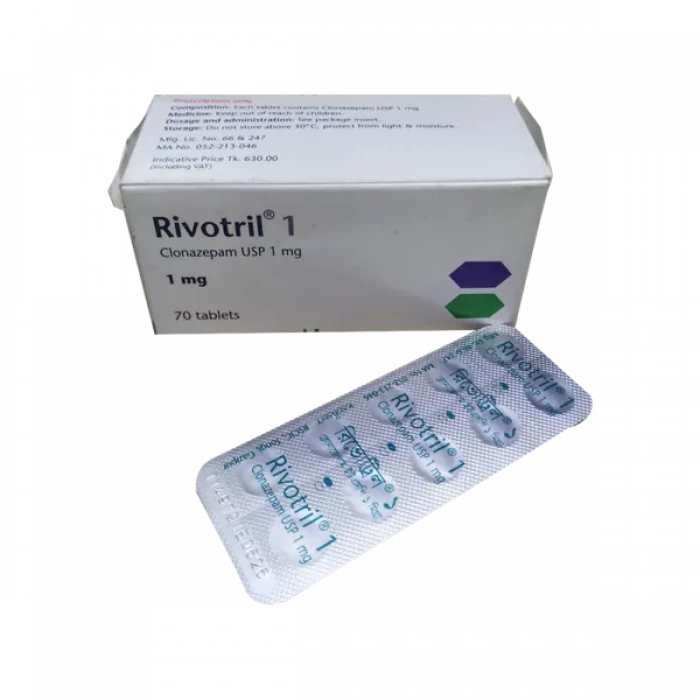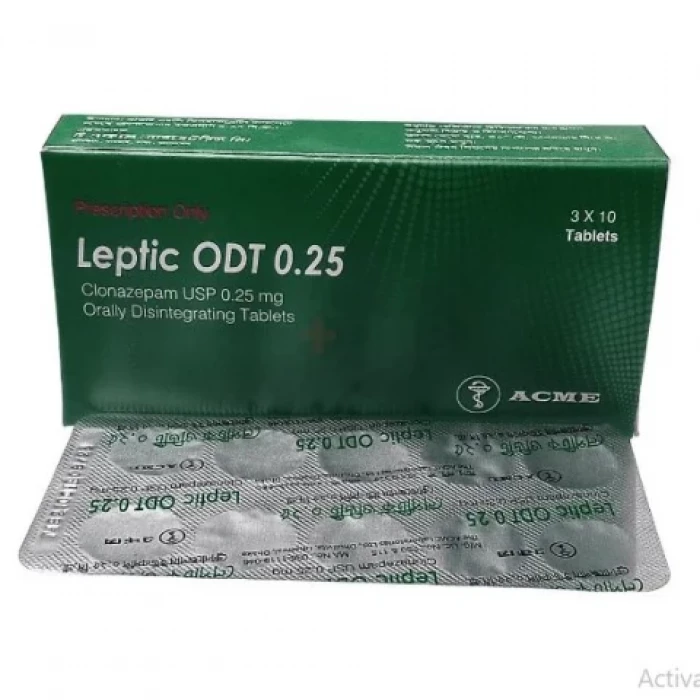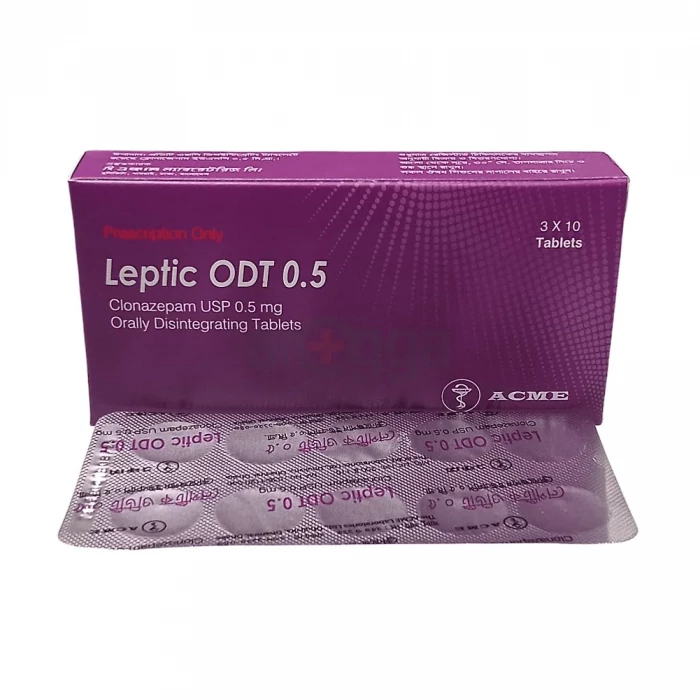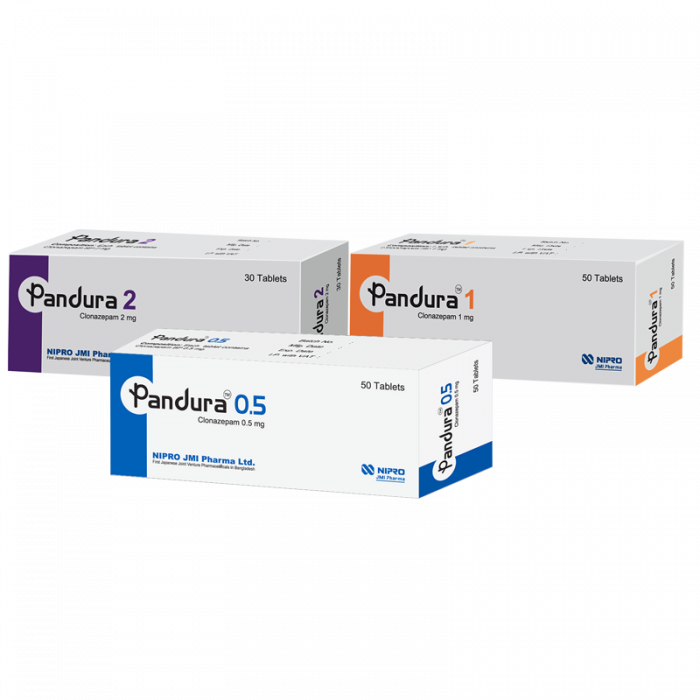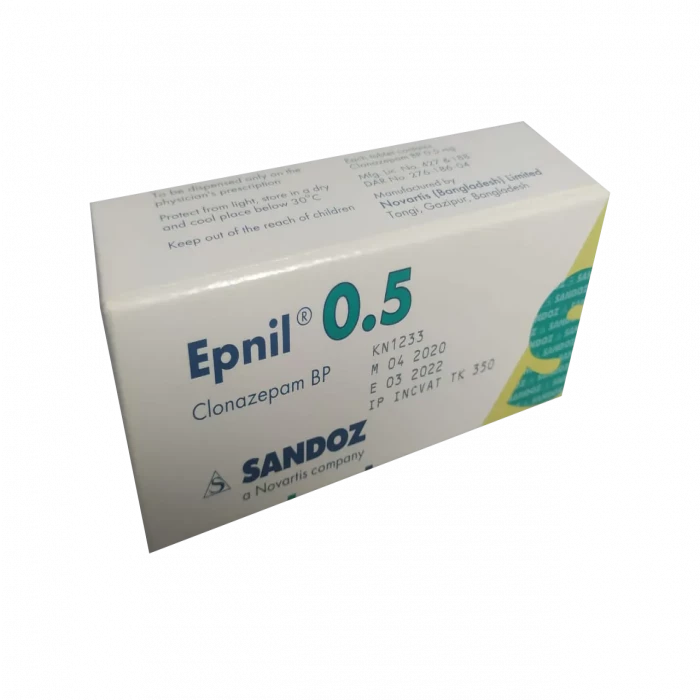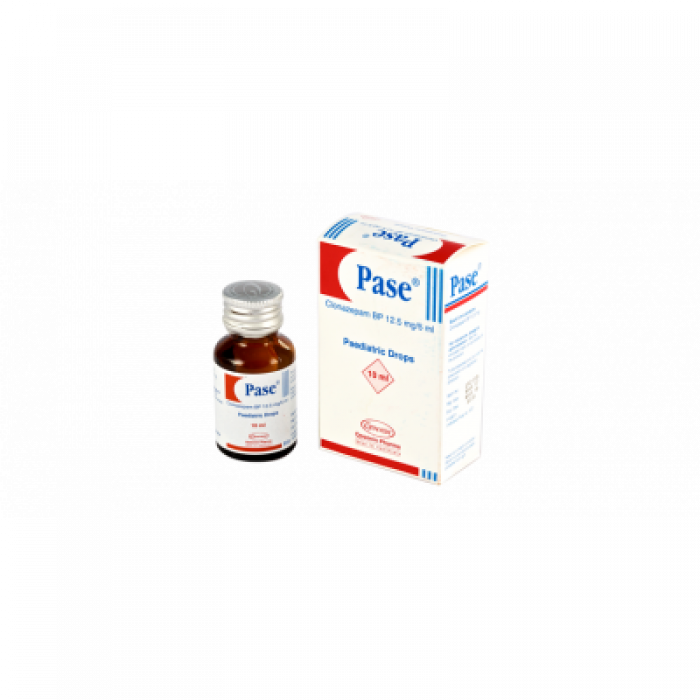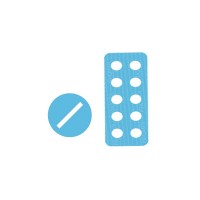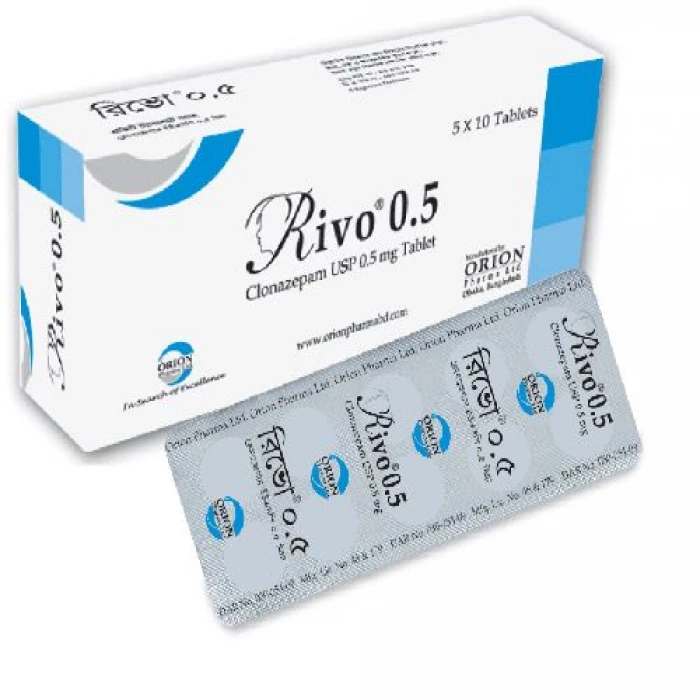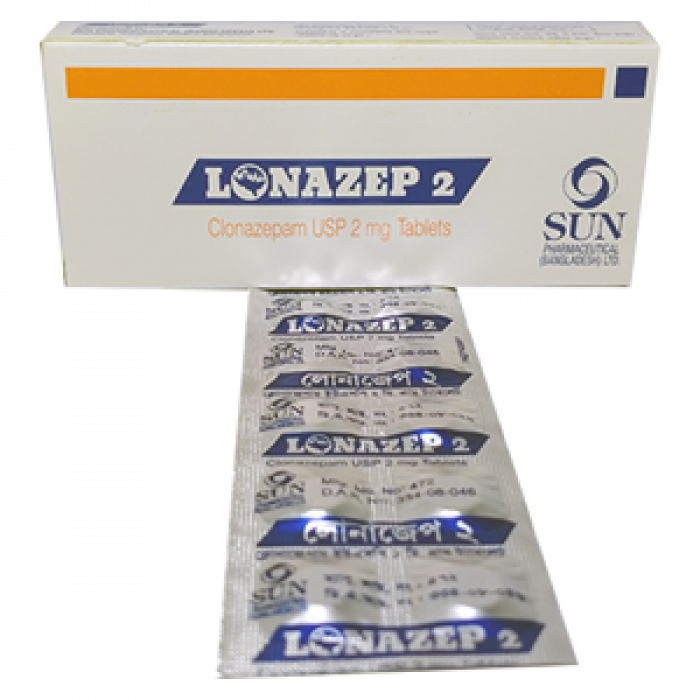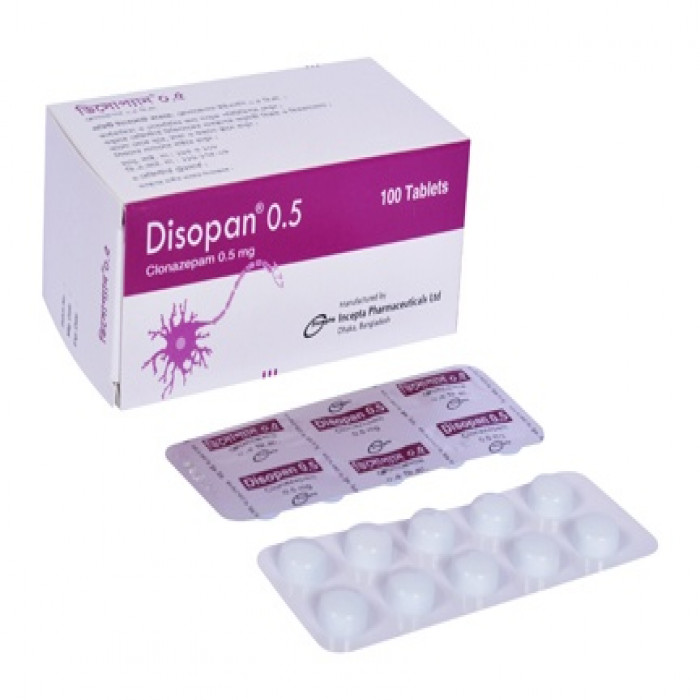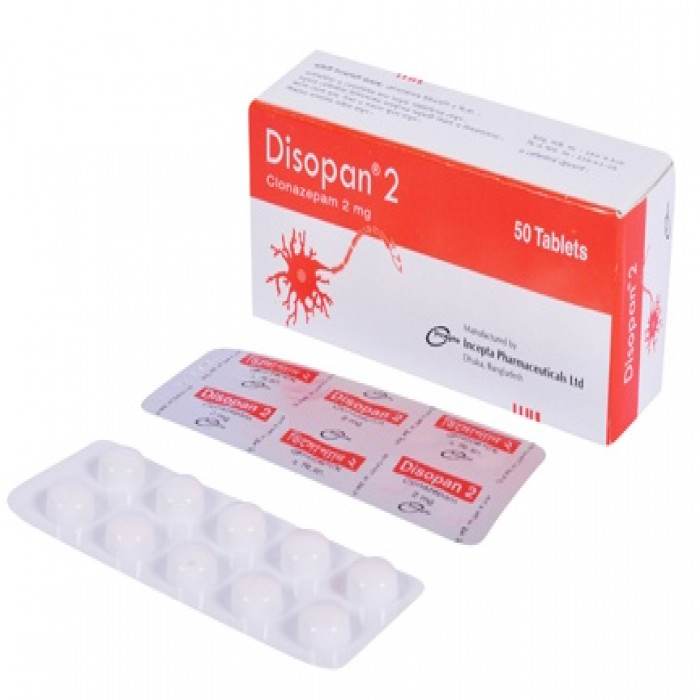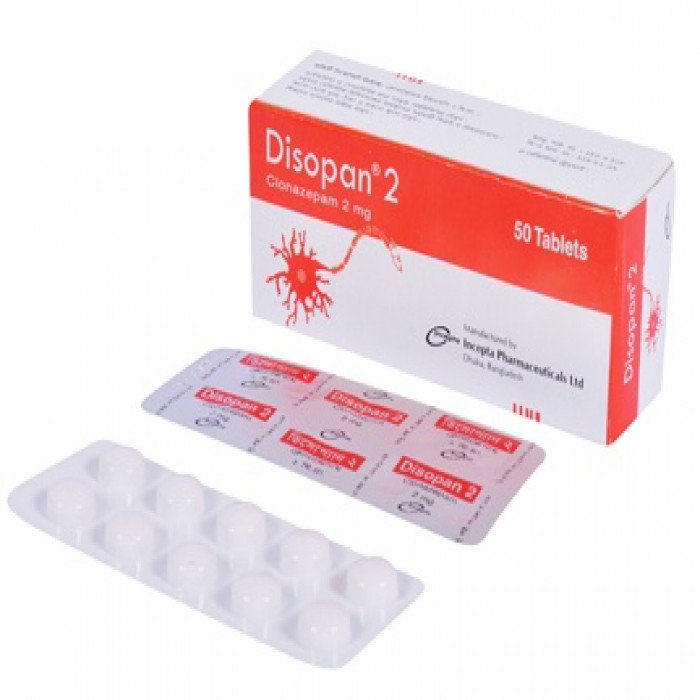
✔ 100% Authentic Product
👁️ Currently Viewing 12793
- Disopan 2 Tablet is a benzodiazepine medicine that is primarily used to treat seizures or fits caused by epilepsy, panic disorder, and involuntary muscular spasms. Disopan 2 can also help with restless leg syndrome.
- Epilepsy is a common neurological condition characterized by recurring seizures. Seizures are caused by a rapid burst of electrical activity in the brain, which impairs normal brain function.
- Panic disorder is an anxiety condition characterized by frequent panic or fright attacks. Disopan 2 includes clonazepam, which acts in the brain by raising the level of a relaxing substance called gamma-aminobutyric acid (GABA). This alleviates anxiety and convulsions. (fits). It also aids in the relaxation of stiff muscles.
- As a result, Disopan 2 can help with the treatment of seizures, panic attacks, and involuntary muscular spasms.
📄Prescription Required
Discount
Price: ৳ 594
MRP:
৳
625
5%
Off

100% Genuine Products, Guaranteed

Safe & Secure Payments, Always

Fast, Secure & Efficient Delivery

Proper Packaging
 Cash on Delivery - All over Bangladesh
Cash on Delivery - All over Bangladesh Regular Delivery - 12-24 Hours, Dhaka City* Charge Tk.39-59
Regular Delivery - 12-24 Hours, Dhaka City* Charge Tk.39-59 Regular Delivery - 24-48 Hours, Other Cities* Charge Tk.99-110
Regular Delivery - 24-48 Hours, Other Cities* Charge Tk.99-110
🌙 রমযান অফার 🌙
 ফ্রি ডেলিভারিঃ - ৭৯৯ টাকা+ অর্ডারে, ঢাকা
শহরে
ফ্রি ডেলিভারিঃ - ৭৯৯ টাকা+ অর্ডারে, ঢাকা
শহরে ফ্রি ডেলিভারিঃ - ২৭৯৯ টাকা+ অর্ডারে, ঢাকার
বাহিরে
ফ্রি ডেলিভারিঃ - ২৭৯৯ টাকা+ অর্ডারে, ঢাকার
বাহিরে
📲 মোবাইল অ্যাপ অর্ডারে সাশ্রয় বেশী
-
Google Play Store থেকে ডাউনলোড
-
Apple Store থেকে ডাউনলোড
100% Genuine Products, Guaranteed
Safe & Secure Payments, Always
Fast, Secure & Efficient Delivery
Proper Packaging
 Cash on Delivery - All over Bangladesh
Cash on Delivery - All over Bangladesh Regular Delivery - 12-24 Hours, Dhaka City* Charge Tk.39-59
Regular Delivery - 12-24 Hours, Dhaka City* Charge Tk.39-59 Regular Delivery - 24-48 Hours, Other Cities* Charge Tk.99-110
Regular Delivery - 24-48 Hours, Other Cities* Charge Tk.99-110 ফ্রি ডেলিভারিঃ - ৭৯৯ টাকা+ অর্ডারে, ঢাকা
শহরে
ফ্রি ডেলিভারিঃ - ৭৯৯ টাকা+ অর্ডারে, ঢাকা
শহরে ফ্রি ডেলিভারিঃ - ২৭৯৯ টাকা+ অর্ডারে, ঢাকার
বাহিরে
ফ্রি ডেলিভারিঃ - ২৭৯৯ টাকা+ অর্ডারে, ঢাকার
বাহিরে- Google Play Store থেকে ডাউনলোড
- Apple Store থেকে ডাউনলোড
🌙 রমযান অফার 🌙
📲 মোবাইল অ্যাপ অর্ডারে সাশ্রয় বেশী
✅ Description:
Disopan 2 Tablet prevents your brain from producing the chemicals that cause anxiety, therefore alleviating the symptoms of excessive anxiety and concern. It can also help with the symptoms of Generalised Anxiety Disorder such as restlessness, weariness, difficulty focusing, irritability, and sleep issues. As a result, the Disopan 2 Tablet will make your everyday tasks easier and more productive. Even if you feel OK, keep taking this medication. Stopping abruptly can lead to major difficulties.
Safety Advices

Alcohol
UNSAFE
You are recommended not to consume alcohol along with Disopan 2 to avoid unpleasant side effects like drowsiness, dizziness, or sleepiness.

Pregnancy
UNSAFE
Disopan 2 Tablet 50's belongs to pregnancy Category D. It is usually not recommended during pregnancy. However, consult your doctor if you are pregnant or planning for pregnant.

Breastfeeding
CONSULT YOUR DOCTOR
Avoid breastfeeding while on treatment with Disopan 2 Tablet '50s.

Driving
UNSAFE
Disopan 2 Tablet may cause dizziness, drowsiness, and visual disturbances which may affect the ability to drive or operate machinery. So, do not drive or operate heavy machinery if you feel sleepy or dizzy after taking Disopan 2 Tablet 50s.

Kidney
CAUTION
Disopan 2 is to be taken with caution, especially if you have a history of kidney disorders. The dose may have to be adjusted by your doctor.

Liver
CAUTION
Disopan 2 is to be taken with caution, especially if you have a history of Liver diseases/conditions. The dose may have to be adjusted by your doctor.
✔️ Uses of Disopan 2
- Treatment of Anxiety/Panic disorder
- Seizures Disorders
- Involuntary Muscle Spasms
- Restless Leg Syndrome
✔️ How to use Disopan 2
Take this medicine in the dose and duration as advised by your doctor. Swallow it as a whole. Do not chew, crush or break it. Disopan 2 may be taken with or without food, but it is better to take it at a fixed time.
✔️ How Disopan 2 works
Disopan 2 is a benzodiazepine. It works by increasing the action of a chemical messenger (GABA) which suppresses the abnormal and excessive activity of the nerve cells in the brain.
✔️ What if you forget to take Disopan 2?
If you miss a dose of Disopan 2, take it as soon as possible. However, if it is almost time for your next dose, skip the missed dose and go back to your regular schedule. Do not double the dose.
✔️ Side Effects of Disopan 2
- Nausea
- Diarrhea
- Drowsiness
- Dizziness
- Lethargy
- Fatigue
- Problems with walking and coordination
- Depression
- Blurred vision
- Confusion
- Irritability
- Loss of libido
- Lack of motivation
- Psychomotor agitation
- Worsening of depression
- Short-term memory loss, anterograde amnesia (a type of memory loss)
- Delayed Ejaculation
- Anorgasmia (decreased orgasm)
- Low sexual desire
- Uncoordinated body movements
✔️ Quick Suggestions":
- The addiction / habit-forming potential of this medicine is very high. Take it only as per the dose and duration advised by your doctor
- It may cause dizziness. Do not drive or do anything that requires mental focus until you know how this medicine affects you.
- Avoid consuming alcohol as it may increase dizziness and drowsiness.
- Inform your doctor if you are pregnant, planning to conceive, or breastfeeding.
- Inform your doctor if you experience worsen anxiety, depression anger, or violent behavior and mania while taking this medicine.
- Do not stop taking the medication suddenly without talking to your doctor as that may lead to nausea, anxiety, agitation, flu-like symptoms, sweating, tremor, and confusion.
- If you have decreased sexual desire after using Nexito Disopan 2, consult your doctor.
- If you have any suicidal or depressive thoughts or ideas, you should tell your doctor as soon as possible.
- You may believe that Disopan 2 Tablet is not immediately beneficial to you. This is due to the fact that you may not experience the full effect for several weeks. medication is critical that you continue to take medication, even if your condition improves gradually.
- Try to spend time with your friends and family. Having a strong social network may help you lower the risk of anxiety.
✔️ Indications of Disopan 2 Tablet
A prescription drug called Disopan 2 is used to treat panic and anxiety disorders, as well as epilepsy (seizures). It helps to calm the brain and lessen abnormal and excessive nerve cell activity.
✔️ Pharmacology of Disopan 2 Tablet
Clonazepam has pharmacological properties similar to those of benzodiazepines, including anticonvulsant, sedative, muscle relaxing, and anxiolytic effects. An increase in GABAergic neurotransmission at inhibitory synapses mediates the effects of benzodiazepines on the central nervous system. The presence of benzodiazepines increases the positive allosteric modulation of the GABA receptor for the neurotransmitter, which causes released GABA to have a greater impact on the postsynaptic transmembrane chloride ion flow.
There is more proof that clonazepam affects serotonin in animals. According to animal studies and electroencephalographic studies in humans, clonazepam suppresses a wide variety of paroxysmal activity, including spike and wave discharge in the absence of seizures (petit mal), slow spike-wave, generalized spike-wave, spikes with temporal or other locations, as well as irregular spikes and waves. More frequently than abnormalities in particular areas, general EEG abnormalities are repressed. These studies suggest that clonazepam may be useful in both generalized and localized epilepsies.
✔️ Dosage & Administration of Disopan 2 Tablet
Oral:
Adults:
- For adults with seizure disorders, the first dose shouldn't be more than 1.5 mg/day divided into three doses. The dosage can be raised by 0.5 to 1 mg every three days until seizures are adequately under control or until side effects make a dosage increase impossible. Each patient's maintenance dosage needs to be tailored to their response. The maximum dose that is suggested each day is 20 mg.
- Adults with panic disorder should start with a 0.25 mg dose, divided into two doses. After three days, the 1 mg/day target dose for the majority of patients may be raised.
Pediatric Patients:
The initial dose for infants and children (up to 30 kg of body weight or 10 years of age) should be between 0.01 and 0.03 mg/kg/day but not more than 0.05 mg/kg/day given in two or three divided doses to reduce drowsiness.
✔️ Interaction of Disopan 2 Tablet
Phenytoin, carbamazepine, and phenobarbital pharmacokinetics do not appear to be affected by clonazepam. Clonazepam's impact on the metabolism of other medications has not been studied.
✔️ Contraindications
It should not be used in individuals who have a history of benzodiazepine hypersensitivity, as well as those who have clinical or biochemical indications of severe liver damage. It can be utilized in individuals with open-angle glaucoma who are on the right medication, but it's not recommended for acute narrow-angle glaucoma.
✔️ Pregnancy & Lactation
Pregnancy:
It cannot be ruled out from preclinical studies that clonazepam has the possibility of birth defects. From epidemiological evaluation, there is evidence that anticonvulsants can be used as teratogens. However, it is difficult to determine from published epidemiological reports which drug or drug combination is the cause of neonatal defects. There is also the possibility that other factors exist. For example, genetic factors or epilepsy itself may be more important than medications in causing birth defects. In these cases, the drug should be used for pregnant women only when the potential benefits outweigh the risks to the fetus. During pregnancy, clonazepam should only be used if there are compelling indications. The use of high doses in the last trimester of pregnancy or during delivery can cause irregular heartbeats in the fetus and neonatal hypothermia, hypotonia, mild respiratory depression, and poor diet. It should be remembered that both pregnancy itself and sudden withdrawal from the drug can cause seizures. Benzodiazepines occasionally cause withdrawal symptoms in newborns.
Nursing Mothers:
Although only a small amount of the active ingredient in clonazepam has been found to pass into breast milk, mothers receiving this drug should not breastfeed. If there are convincing indications for clonazepam, breastfeeding should be stopped.
✔️ Precautions & Warnings
- Clonazepam may increase the incidence or hasten the start of generalized tonic-clonic seizures in individuals who have multiple distinct forms of seizure disorders.
- This may necessitate the addition of or an increase in the dosage of anticonvulsants.
- The use of valproic acid and Clonazepam at the same time might cause absent status.
- Clonazepam can cause dependence and abuse. Therefore, take Disopan 2 only in prescribed doses and as directed by your doctor. Do not self-medicate.
- Clonazepam may cause suicidal thoughts. Consult your doctor immediately if you notice suicidal behavior.
✔️ Storage Conditions
Keep away from light and heat in a dry area. Keep out of children's reach.
⚠️Disclaimer:
At ePharma, we’re committed to providing accurate and accessible health information. However, all content is intended for informational purposes only and should not replace medical advice from a qualified physician. Please consult your healthcare provider for personalized guidance. We aim to support, not substitute, the doctor-patient relationship.




